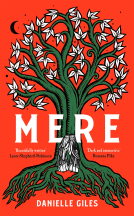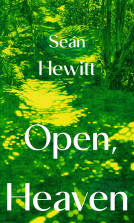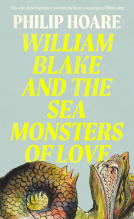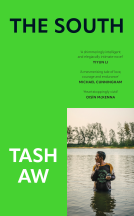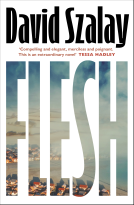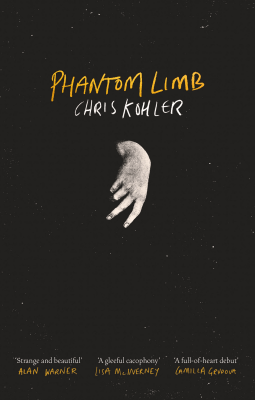
Phantom Limb
by Chris Kohler
This title was previously available on NetGalley and is now archived.
Send NetGalley books directly to your Kindle or Kindle app
1
To read on a Kindle or Kindle app, please add kindle@netgalley.com as an approved email address to receive files in your Amazon account. Click here for step-by-step instructions.
2
Also find your Kindle email address within your Amazon account, and enter it here.
Pub Date 1 Aug 2024 | Archive Date 4 Aug 2024
Atlantic Books | Atlantic Fiction
Talking about this book? Use #PhantomLimb #NetGalley. More hashtag tips!
Description
Lay this hand upon your brow and receive benediction
One evening, Gillis - a young Scottish minister who technically doesn't believe in god - falls into a hole left by a recently dug up elm tree and discovers an ancient disembodied hand in the soil. He's about to rebury it when the hand... beckons to him. He spirits it back to his manse and gives it pen and paper, whereupon it begins to doodle scratchy and anarchic visions. Somewhere, in the hand's deep history, there lies a story of the Scottish reformation, of art and violence, and of its owner long since dead. But for Gillis, there lies only opportunity: to reinvent himself as a prophet, proclaim the hand a miracle and use it for reasons both sacred and profane... to impress his ex-girlfriend, and to lead himself and his country out of inertia and into a dynamic, glorious future.
Advance Praise
'With shades of John Byrne and Alasdair Gray, Phantom Limb is to be treasured. A wonderfully strange, full-of-heart debut' Camilla Grudova, Granta Best of Young British Novelist 2023
'At once playful and deeply moving, ancient and shockingly new, Phantom Limb is a tremendous read: full of wisdom, madness, kindness and action. You won't read anything quite like it' Aidan Cottrell-Boyce, author of The End of Nightwork
'I hear a voice, singing in the wilderness - its sound is strange and it is beautiful. Chris Kohler's Phantom Limb is the Scottish novel I have been waiting on for so long' Alan Warner, author of Nothing Left to Fear From Hell
'Phantom Limb is a chaotic, poignant, grotty, frightening, gleeful cacophony of a book' Lisa McInerney, author of The Rules of Revelation
Available Editions
| EDITION | Hardcover |
| ISBN | 9781805460817 |
| PRICE | £17.99 (GBP) |
Available on NetGalley
Featured Reviews
 Graham F, Reviewer
Graham F, Reviewer
This is a very distinctive and unsettling debut novel – which I think examines how the Scottish reformation lies buried in rural Scottish society to this day, despite the prevalence of agnosticism.
It is told from the third party viewpoint of Gillis – now in his early thirties and a minister in the Church of Scotland in a remote and largely run-down coastal town where the only remaining industry is fishing-dominated, that in turn being increasingly centred around some large (and for from organic) salmon farms with the harbour and fishing boats returning increasingly diminished catches and with all of these (as well as the local hotel, smokehouses and it seems the manse in which Gillis lives and the crumbling Kirk next to it) owned by a local man Nicholson (known to all as Nichol).
Gillis we learn early on was a successful long distance cross country/road-race athlete as a youth (having turned to it after an abortive football career) and moved to England with dreams of fame – only for his knackered knees to put pay to his success. Drifting in England for some years – and having broken off with his Scottish girlfriend Rachel (who he knew since primary school) – he has returned to his home area after a divinity degree despite a lack of belief (“Never believed in God, or heaven, or anything. Just needed the work and wanted a house and a decent car. He knew heaven was empty, so who would it hurt?”). Now his work consist almost entirely of carrying out funerals.
Two key incidents begin the book:
Firstly, falling down a hole left by a falling elm tree which has undermined and cracked the Kirk he finds a severed hand which appears still to be alive – capable of pointing and producing crude but disturbing sketches (which are threaded through the book). Gillis feels it is somehow a message from God but does not know how to receive the message and disturbs people by showing them the drawings, while carrying the hand in a shortbread tin.
Secondly a funeral he is asked to take turns out to be for the husband of Rachel (now mother to a small boy Jamie) who has gone missing at sea – the husband a bookkeeper for Nichol had gone out to sea on one of Nichol’s boats (something he enjoyed doing) still wearing his office clothes and was swept overboard – his body now missing (although later found which gives rise to a second funeral which forms the climax of the book).
Then when Nichol finds the hand – after a post funeral tussle with Gillis as who thinks the pictures are somehow pointing out his culpability in Rachel’s husband’s death (as a key aside this winds up with Gills and Rachel spending the night together after she tends his wounds) – he comes round the next day to say that the hand has somehow cured a chronic skin condition with which he suffered.
Nichol then tries to draw Gillis into two schemes: to persuade the church to deconsecrate the Kirk and move the bodies in the graveyard so as to facilitate his plans to bail out his fading and infection-affected fish-farms by developing the Kirk into flats; to somehow monetise the miracle producing impact of the hand – which also seems to cure Nichol’s secretaries cancer and later the fish-blight.
But Gillis is increasingly drawn to almost messianic visions of his destiny as some form of prophet – able to lead Scotland into national renewal and a rediscovery of faith (for example believing the hand is the first part of the discovery of a long buried national hero).
While to others – Rachel (considering a restored relationship with him but disturbed by his behaviour); Gillis’s father (convinced that Gillis has committed murder and trying to get him to escape); the authorities (police and medical) and the church (who are already considering axing Gillis’s post due to its lack of revenue) – Gillis’s behaviour is increasingly erratic and demanding of intervention.
Gillis’s story is though only the main narrative. Interleaved through his story is one set many hundreds of years earlier in what we intuit is the same location. A young apprentice painter Jan is on his way to deliver a lavishly illustrated Book Of Hours and Prayers to the Laird of Hamilton (a commissioned gift by the Laird for his wife) when he is swept off board and washed up on a river with the book already damaged. His attempts to deliver the damaged book are rebuffed and he finds himself caught up in a violent anti-superstition/Catholicism uprising by a group of austere black jacketed men (to which he claims the book was part of a devilish plot) and then later a counter-revolution with the black jackets treated as heretics to be burnt (in which he is again caught up). During all of this the book gets more and more cut up and damaged – and Jan makes something of a living firstly trading extracts of the book for food and lodgings and then later using torn strips of the book as miraculous charms as an itinerant (if rather fraudulent) healer and holy man.
Increasingly we see the stories converge and both reach a climax (Gillis’s at the second funeral and with a dramatic roof top escape ended by a lightning strike; Jan’s when his hand is put to the flames) and a convergence.
Overall, I found this a very distinctive novel – if not a completely successful one. The modern day sections worked really well for me – there is an offbeat humour and the side characters (Nichols, Rachel and Gillis’s Dad) and their relationships have a satisfactory level of complexity and ambiguity to them. The historic sections did not quite work so well for me – more based on empirical evidence as I was always pleased to return to Gillis’s story. I was also unsure that I really grasped everything that was happening – in particular the drawings (whose very inclusion in the story seems to herald their importance) remained unclear to me in their meaning – and perhaps that could go for the whole novel in that I was not fully clear if there was a deeper meaning to the novel beyond its intriguing quirkiness.









